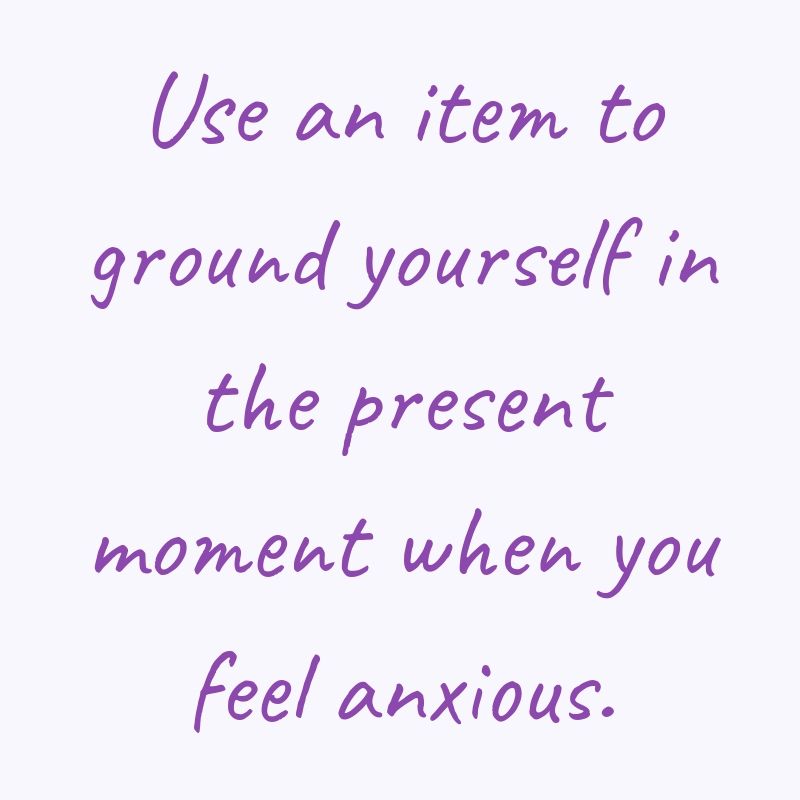6 tips to manage summertime anxiety

If you have anxiety, you’ll know that it can affect you any time of year. For many, summer brings unique challenges, especially if you experience panic attacks or agoraphobia.
The temperature itself can trigger fears of passing out, BBQs and other gatherings can be hard if you have social anxiety and bigger events like carnivals and festivals can feel tough if you have agoraphobia.
As tempting as it may be to stay indoors, if you want to enjoy summer without fear stopping you – you can. Below we share some of our top tips for managing summertime anxiety and how you can get the support you need.
1. Stay cool in the heat
Heat and humidity can make you feel anxious or worried about getting unwell. Try to keep yourself as cool as you can. Use a hand-held fan when you’re out and about or invest in a cooling spray. Wear loose-fitting, breathable clothes and avoid being in direct sunlight when the sun is at its most powerful (usually between 10am and 3pm).
Take cool showers and keep yourself hydrated with plenty of cold water. If you feel unwell while out, try to find some shade or somewhere with air conditioning. If you think having a seat on the tube will help you cope with your anxiety, remember you can apply for a badge to let people know you require a seat.
2. Get a lay of the land before an event
If you’re attending an event in a new venue (for example a gig or festival) it can really help if you get to know the venue ahead of time. You can use Google street view to see what it will look like and then try to find plans/maps of the venue itself so you see where the exits and toilets are.
This should help you plan your visit and feel more comfortable. If you are worried about becoming separated from your friends, arrange a meeting place before the event just in case that happens (phone signal can be notoriously bad at events like this).
3. Use a grounding object
![]()
Having something to focus on when you’re feeling anxious can be very helpful. You may want to buy something dedicated, like a fidget cube, or you may prefer to use a rock, a wrist band or some other item you know will help.
Use this item to ground yourself in the present moment when you feel anxious. Focus on the way it feels and then focus on what you can see, hear, smell and taste in that moment.
Take some slow deep breaths and remind yourself that you are completely capable of managing a panic attack, should one start.
4. Take breaks
If you’re finding it difficult to be in a social environment, remember it’s OK to take breaks. Take yourself outside or to the toilet and give yourself a few minutes to breathe. Practise a breathing exercise or even a quick meditation. If this doesn’t help and you want to leave, this is absolutely fine too.
Managing anxiety is all about taking small steps and celebrating wins, so even if you didn’t stay out as long as you would have liked, remember to celebrate the fact that you went.
5. Get support
When anxiety is affecting your life, it’s important to get help. There are various treatment options available and speaking to your doctor in the first instance is advised.
Hypnotherapy is one option you may want to explore as it works on a subconscious level, helping to change thinking patterns that can lead to a panic attack. Your hypnotherapist should also be able to teach you relaxation and self-hypnosis techniques to help you manage anxiety outside of your sessions.
6. Be kind to yourself
Self-care looks different to all of us and in some cases, it means saying no to an invitation. While it’s important to try and push yourself, taking things slowly and listening to your body is key. Try not to beat yourself up if you haven’t achieved all that you wanted to over summer, show yourself some compassion, set some new goals and try again.

Find a hypnotherapist dealing with Anxiety
All therapists are verified professionals






